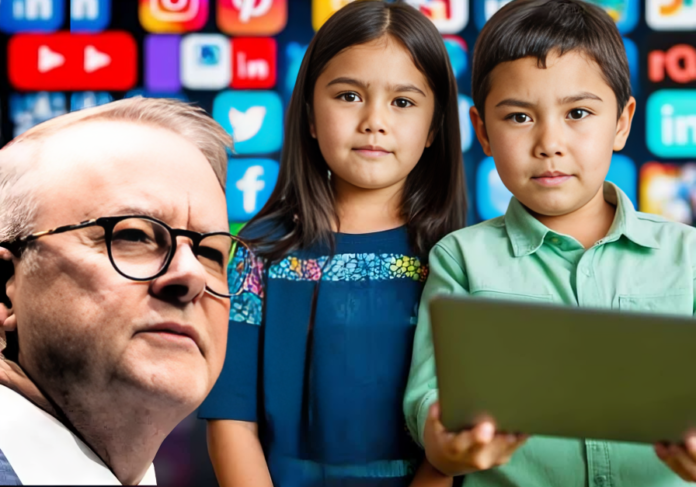The Australia Social Media Ban for Kids Under 16 has become a pivotal moment in the nation’s effort to protect children in the digital era. This legislation, passed on November 28, 2024, imposes a strict age restriction on social media access for individuals below 16. The law is touted as one of the most stringent globally, setting a benchmark for online safety.
Overview of the Australia Social Media Ban for Kids Legislation

Key Features of the Bill
The Australia Social Media Ban Bill mandates social media platforms like Meta (Facebook, Instagram), ByteDance (TikTok), and Alphabet (YouTube) to implement advanced age-verification systems. Key aspects include:
Mandatory Compliance: Platforms must ensure children under 16 are entirely blocked from accessing their services.
No Parental Waivers: Unlike laws in other nations, parental consent cannot override the restriction.
Accountability Shift: Responsibility lies with social media companies rather than parents or young users.
Why the Ban? Addressing Health and Safety Concerns
The Australia Social Media Ban for Children Under 16 was driven by rising concerns over mental health and safety. Prime Minister Anthony Albanese highlighted how social media exposure exacerbates issues like anxiety, depression, and body image insecurities, especially during adolescence.

Impact on Adolescents
Girls: Unrealistic beauty standards perpetuated by social media worsen body image issues.
- Boys: Exposure to misogynistic content increases psychological and social risks.
In Albanese’s words:
“Social media is doing harm to our kids, and I’m calling time on it.”
Implementation Timeline and Global Context
Australia Leads the Charge
This law is set to be implemented 12 months after ratification. Globally, Australia’s approach stands out. Unlike France, which allows exceptions with parental consent, or the U.S., where only children under 13 face restrictions, this legislation applies universally to those under 16.
How the Ban Aligns Globally
Australia Social Media Ban Age: Strictly under 16 without exceptions.
Other Countries: France proposes 15+, U.S. enforces parental consent under 13.

Industry and Public Reaction
Supporters
Child safety advocates and mental health experts have applauded the legislation for prioritizing adolescent well-being. They argue it is a critical step toward combating the detrimental effects of social media overuse.
Critics
Conversely, tech companies have expressed concerns about the feasibility of implementing robust age-verification systems. Privacy advocates warn that the legislation might inadvertently lead to data security issues.
Future Implications of the Legislation
The Australia Social Media Ban 16+ restriction could pave the way for broader digital reforms. Potential areas for future focus include:
AI Moderation: Enhancing content regulation to protect young users.
Data Privacy: Strengthening measures to secure personal information during verification processes.
The Australia Social Media Ban Bill marks a decisive step in safeguarding children’s mental health and ensuring a healthier online environment. With this legislation, Australia has redefined digital governance and set an example for other nations grappling with similar challenges. The world will be watching as this policy unfolds, shaping the future of online safety.
How to Handle Children’s Digital Craving?

Screen time addiction has become a growing concern, particularly for children, as excessive device use impacts physical and mental well-being. Dubbed “digital craving,” this issue is linked to dopamine surges caused by device interaction. Addressing it involves strategies such as creating screen-free zones, encouraging outdoor play, and setting realistic goals to limit usage. Parents are urged to lead by example and engage in alternative activities to foster healthier habits and relationships.


